The Familias Fuertes (Strengthening Families) program helps prevent risk-seeking behaviors among adolescents.
— August 2023 —
“I really like to cook. Sometimes after school, I’d cook something good but when I’d ask them to try it, they were always too busy,” said 12-year old Rodrigo, a participant in the Familias Fuertes program from Chiapas in Mexico. “Before participating, I felt excluded from my family. I didn’t feel appreciated. It was like they didn’t love me,” he added.
“Before participating in the program, we had quite a violent relationship” agreed Francisco, Rodrigo’s father. “They don’t teach you how to be a parent. It was all shouting and hitting. I felt like a bad father, just repeating what I myself had experienced as a teenager. My wife couldn’t believe that I was doing this to my own family.”
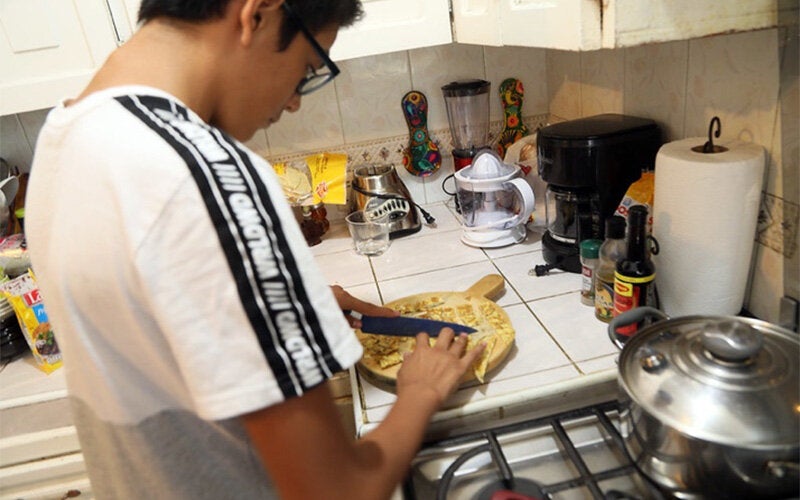
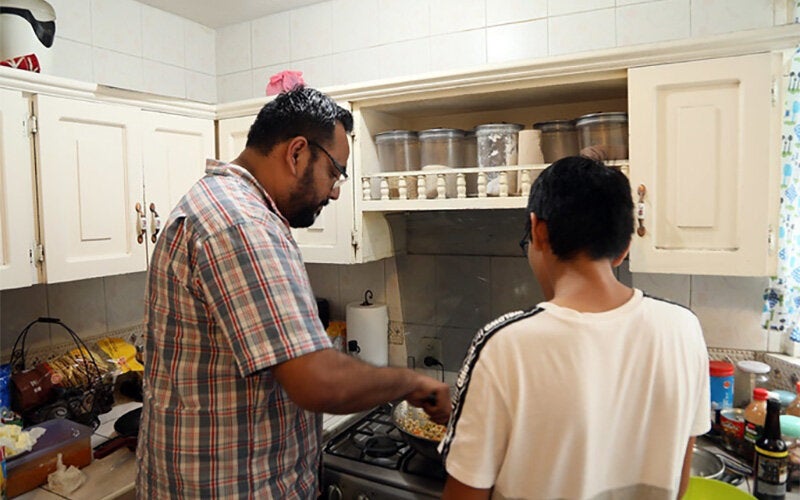
Francisco’s wife, Ana, a psychiatrist who coordinates Familias Fuertes sessions in the Chiapas capital, Tutxla Guttierez, recognized the serious communication difficulties that were taking place in her home, particularly between father and son and, after seeing the improvements that other families had made thanks to the program, decided that it was time for her own family to take part.
During the sessions, which take the form of a series of workshops, family members are given a survey to determine what is going on in the home and what the relationship between children and parents currently looks like. Program facilitators then work separately with parents and adolescents, before working together to encourage productive dialogue and better communication. After seven sessions, an evaluation is carried out to see how much impact the program has had on the lives of participating families.
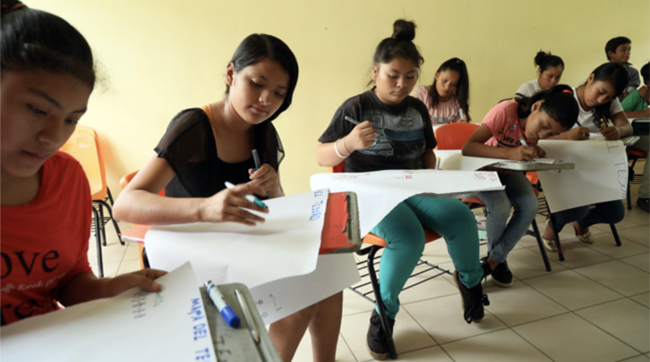
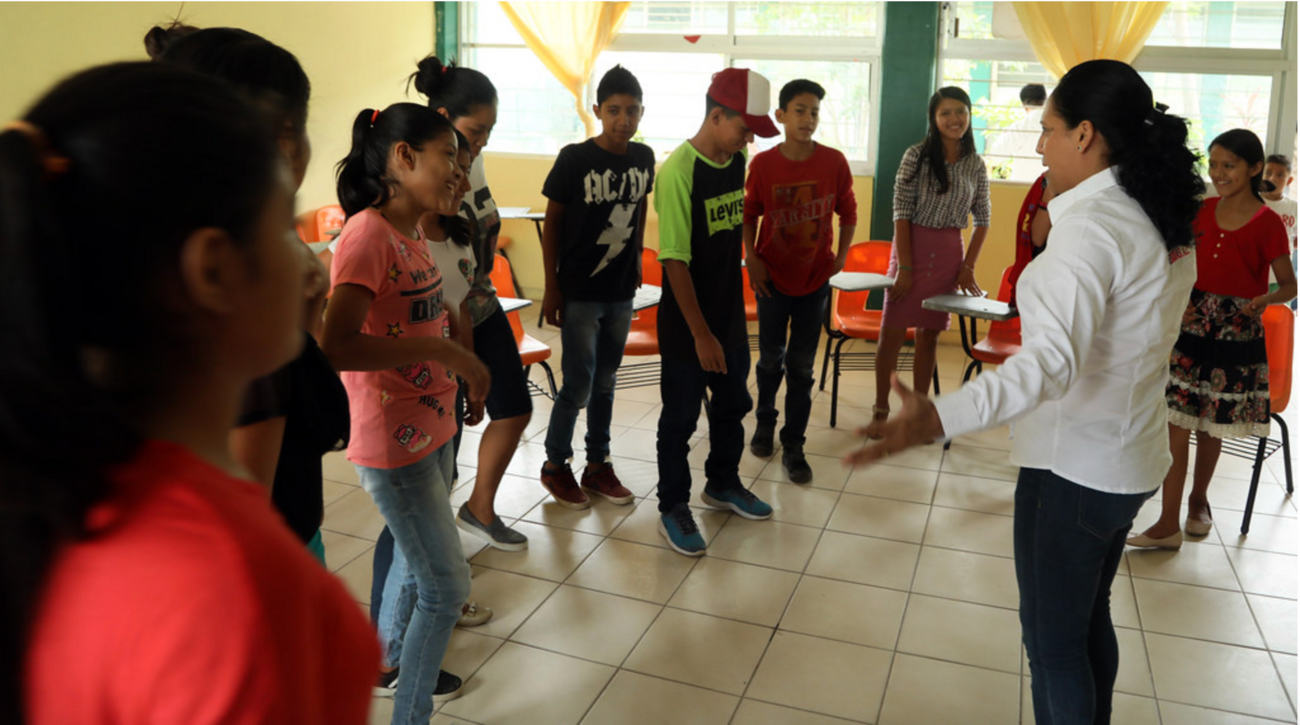
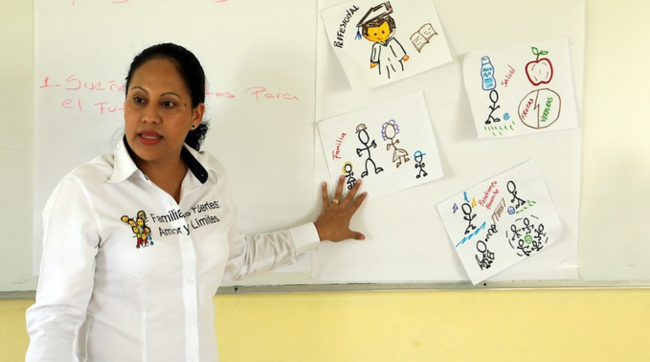
“I was a bit scared to take part because I was worried about what I would have to do, but when we started to learn how to communicate, I saw how the relationship with my son became stronger,” said Francisco. “One of the changes I’ve seen is that now there’s no verbal aggression with my wife or my children. There is more communication and participation. Above all, the biggest change is that I’ve accepted that I was doing things the wrong way and accepting this has opened me up to change,” he added.
For Francisco, it was also important to recognize that his son isn’t his friend, but his son. “We are from a macho culture and the challenge with Rodrigo and his friends is the “If you don’t do X, you’re not a man” stuff. As a father, I need to react when I see things like that happening.”
After participating in Familias Fuertes, the family now prioritizes spending time together and holding family meetings to address any issues that may arise, parenting techniques that Francisco hopes Rodrigo will one day implement with his own children.
“I am so proud of my son. I’ve even started to appreciate his cooking. Not all of his dishes, but some of them,” he added.
The Familias Fuertes program was originally developed by Iowa State University, in the United States, and then adapted for use in Spanish by the Pan American Health Organization (PAHO). The program aims to address physical and mental health issues and prevent risk-seeking behavior among adolescents and their families through the promotion and strengthening of communication between parents and children.
Familias Fuertes was implemented by the Ministry of Health in Chiapas in 2017 in order to address endemic adolescent health issues in the area such as drug addiction, alcoholism and teenage pregnancy.
“We know that adolescence is a difficult period because of the physical and psychological changes that take place. A lot of young people feel pretty lost and are trying to find their way in the world,” said Jose Manuel Cruz Castellanos, Health Secretary of Chiapas. “This is when we start getting issues like adolescent pregnancy, which happens a lot here, young people with addictions, and sexually transmitted diseases.” he added.
“We need to support families and ensure that the focus is on looking after and accompanying young people.”
For Carolina Sohle Gomez, local Councillor from Tutxla Gutierres, Chiapas, the program is an important part of addressing delinquency, early pregnancy and abuse. “We often rely on the education system or the health system to do something but this should really start in the home. This type of program aims to strengthen the family unit and improve family values,” she said.
For Rosa Maria Gonzalez Perez and Eduardo Rodriguez Perez, parents from Mitontic, an indigenous mountain community, Familias Fuertes has significantly improved their own relationship as well as communication with their two young daughters.
“Before participating in Familias Fuertes, we checked that our daughters were ok. If they had left, if they had come back, but that was it,” said Eduardo, admitting that communication was limited. “I didn’t ask them how school had gone or had a look at their homework, that type of thing. For the Perez family, the workshops encouraged them to expand communication and talk about what they think and how they feel and this, in turn, has led to improvements in their relationships.
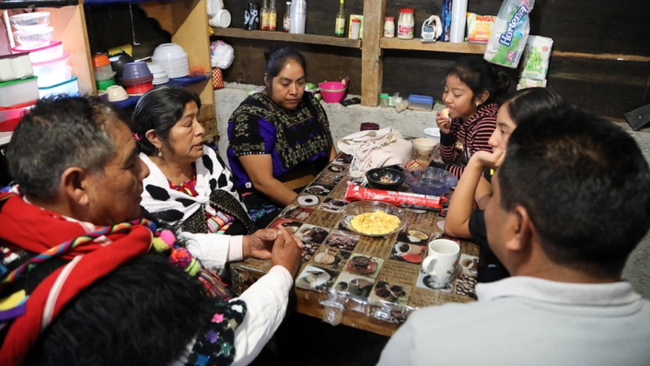
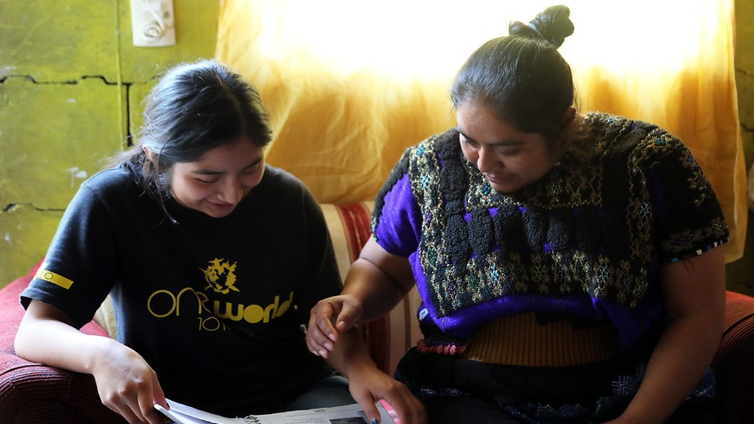
“I notice that my daughters trust us more,” said Rosa Maria. “When they are sad, they talk to us about it. They tell us what happened at school. They ask permission before doing anything,” she added.
For Eduardo, the program also encouraged him to address gender stereotypes that were affecting his relationships with the women in his family. “Here, in indigenous communities there is a lot of machismo,” he said. “As a man, I don’t wash dishes, I won’t pick up a broom, I don’t hug my children. Familias Fuertes teaches you that its not like that. Now, if mom doesn’t feel well, one daughter sweeps, I’ll tidy up, or I’ll make the breakfast, they do the washing up. This is something wonderful that has happened in our family. This is why it is so important that Familias Fuertes continues.”
“Lots of parents say that no one ever taught them to be parents,” said Familias Fuertes Coordinator, and mother of Rodrigo, Ana Laura Pinto Hernandez. “This program shows us how we act as parents and how we can improve.”
As a psychiatrist, Ana has participated in a lot of programs that focus on adolescents but very few with such an integrated focus on the family. She believes that directing more resources towards this kind of family intervention will help reduce the burden on the country’s health care system overall.
“We’ll have less ill people, less pregnant adolescents, less maternal death, less young people drinking on the street and cutting class,” she said.
Sohle Gomez agrees that it is vital to look at adolescent health issues not just as adolescent issues but as family issues. “As mothers, fathers, citizens, we can’t help but see the breakdown of social fabric, the loss of values, the lack of communication with our children,” she highlighted. “With Familias Fuertes you can see the results on the families and how the program transforms their family unit. We must start spending our resources, our human resources, and our energy on the family,” she added.